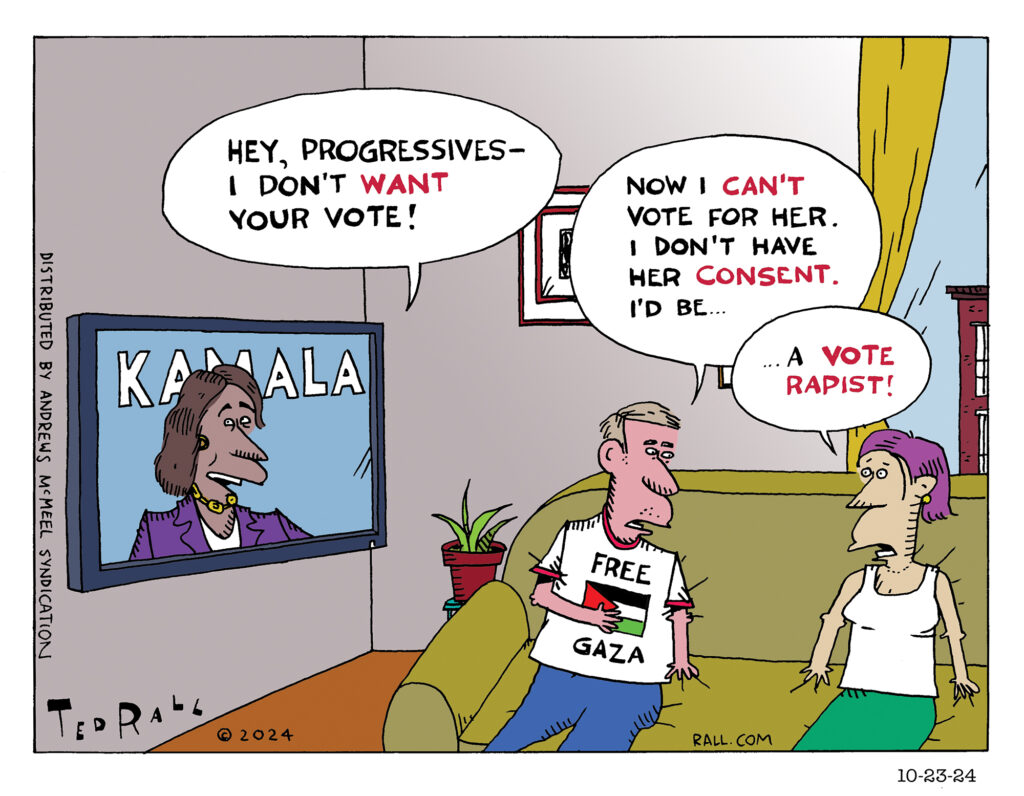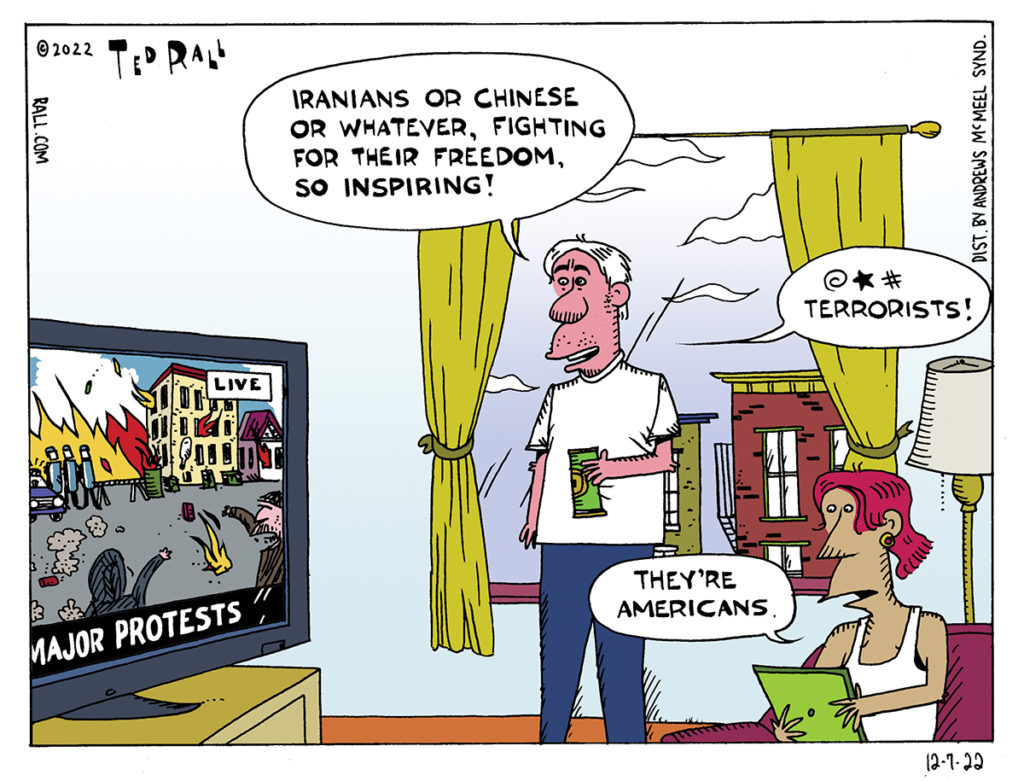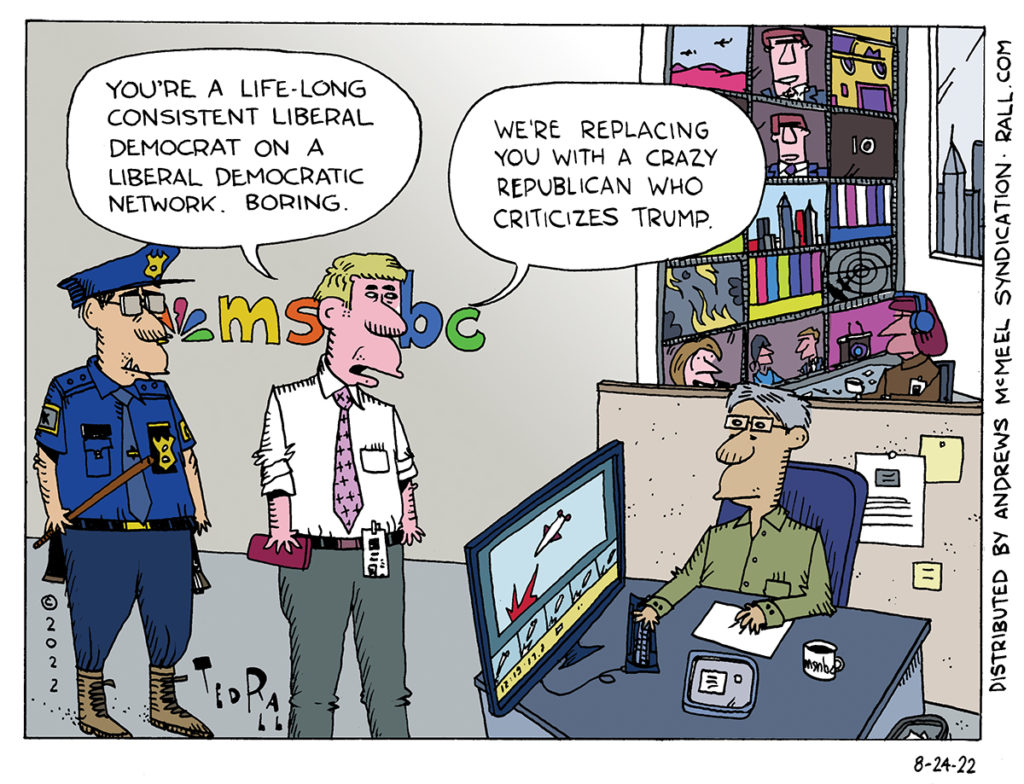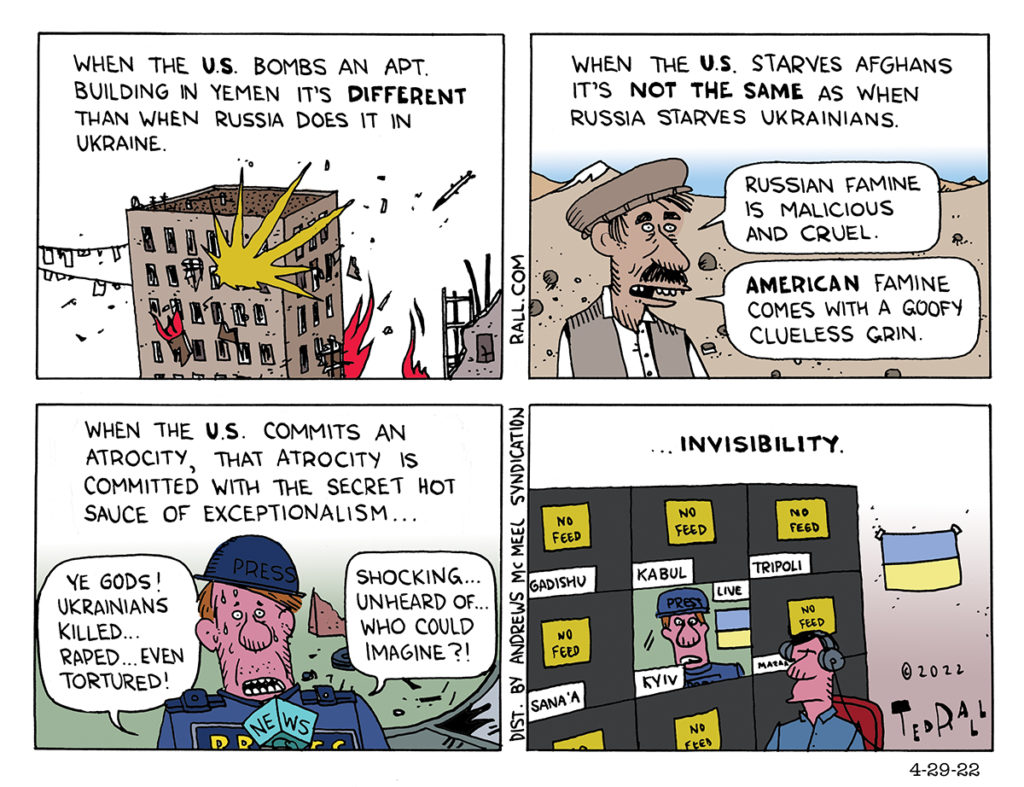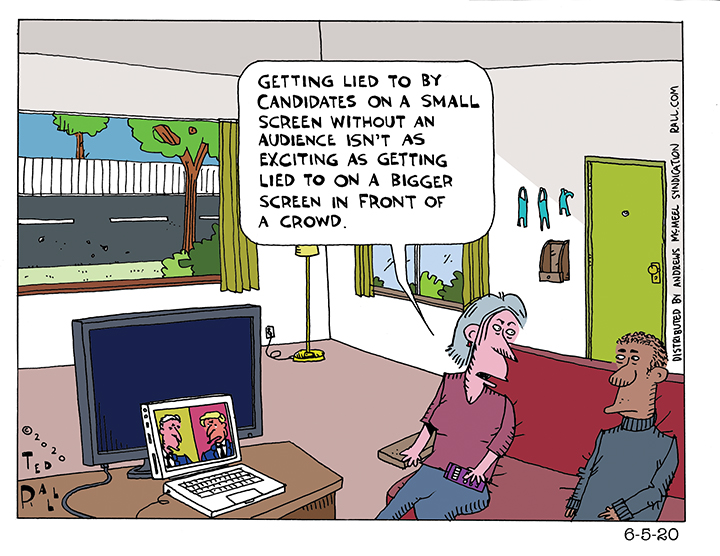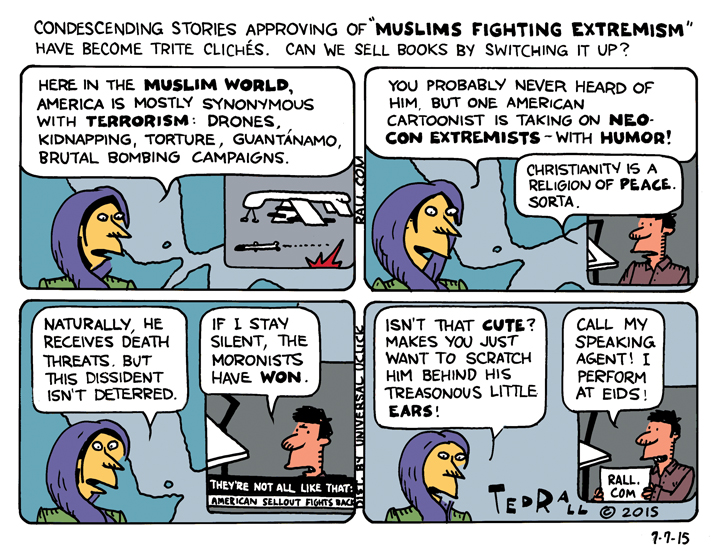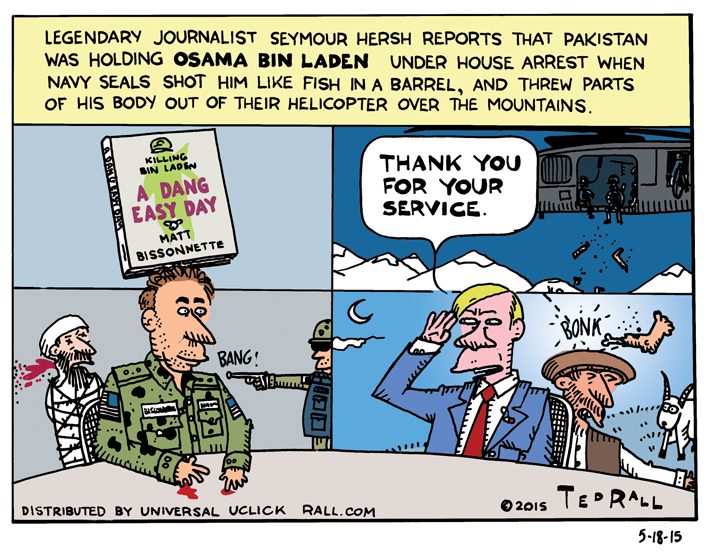The DMZ America Podcast’s Ted Rall (on the Left) and Scott Stantis (on the Right) celebrate the December 23rd holiday of Festivus with the traditional Airing of Grievances. As “Seinfeld”’s Frank Costanza said it in the show’s Festivus episode: “I got a lotta problems with you people, and now you’re going to hear about it!”
Scott and Ted are deeply, deeply disappointed by many people and things, and now you’re going to hear about it.

